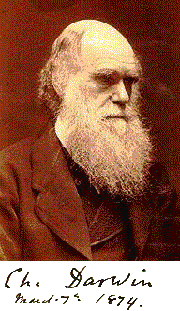 |
Evolution Links to our Past News of the Present Insight for the Future |

© Linnean Society of London |
Darwin's Views on Religion
Written for His Children in 1876
Published Posthumously in 1887
From Life and Letters of Charles Darwin
Vol. 1, Chapter VIII, Religion, pp.274-286, Appleton 1896
Edited by his son Francis Darwin
and
The Autobiography of Charles Darwin 1809-1882, with Original Omissions Restored
by Nora Barlow, Collins, 1958
Books | Botany | Cell Biology | Chemistry | Creationism | Current News | Darwiniana
Dict. / Encyclo. | Ecology | Education | Essays | Eugenics | Evolution | Fossil Record
Genetics | Geology | Gouldiana | Health | Homework | Human Origins | Intermediates
Math | Museums | Origin of Life | Paleontology | Photos | Physics | Reference Aids
Science Journals | Sociobiology | Taxonomy | Transitionals | The Universe | Zoology
religion.htm Last Updated April 22, 2026 Links verified April 22, 2026